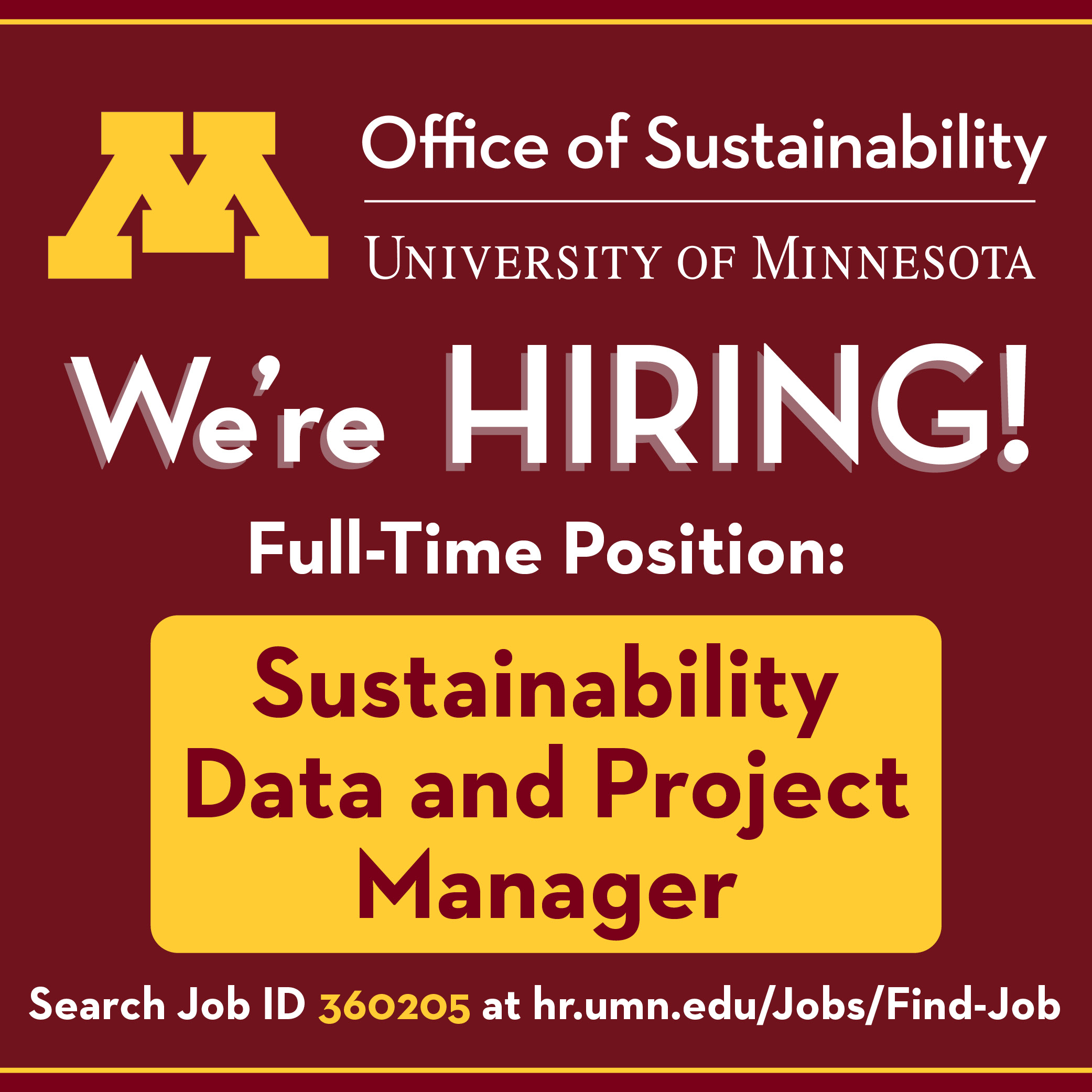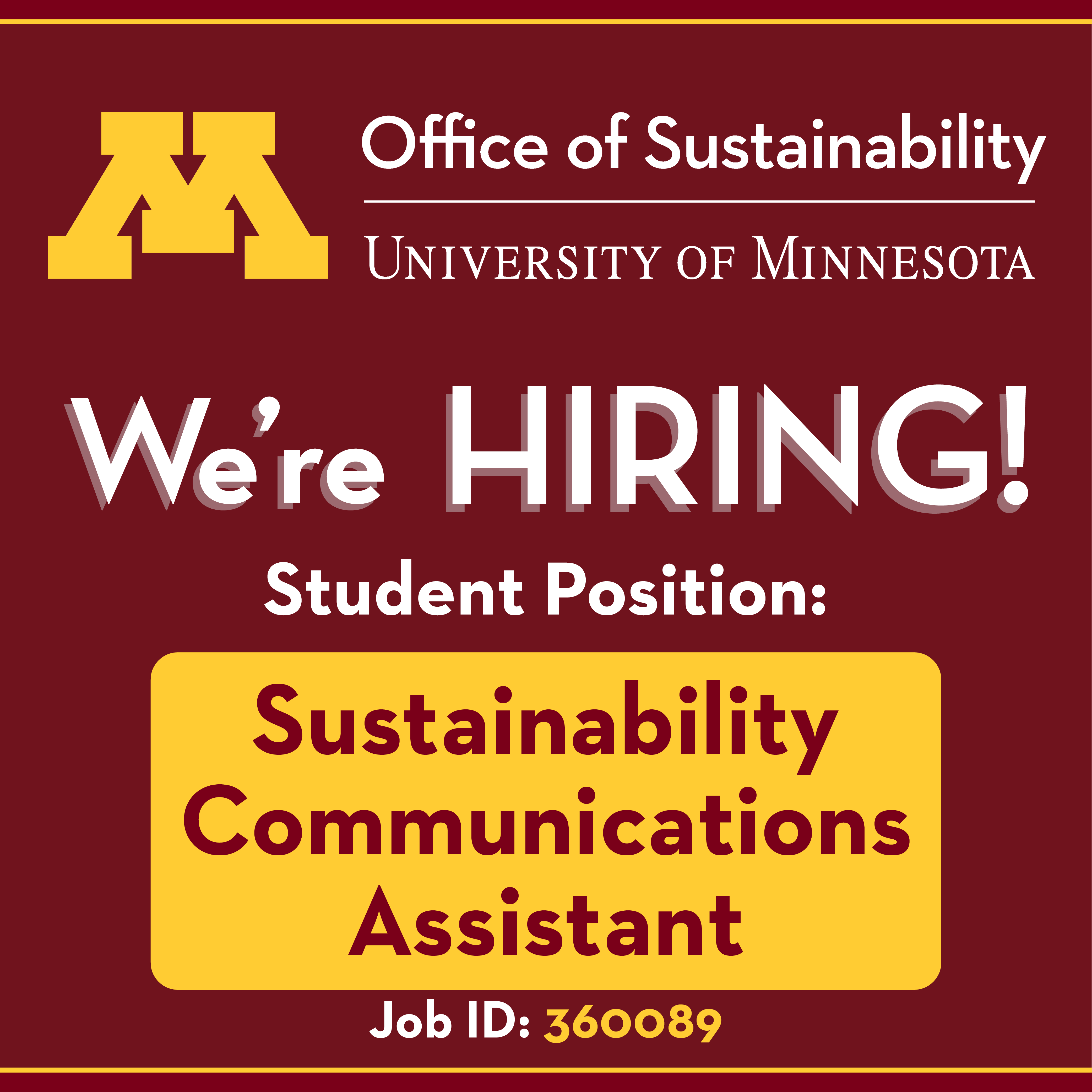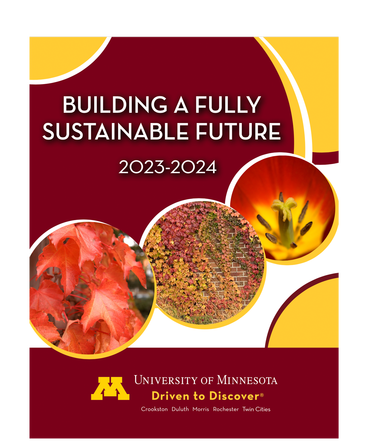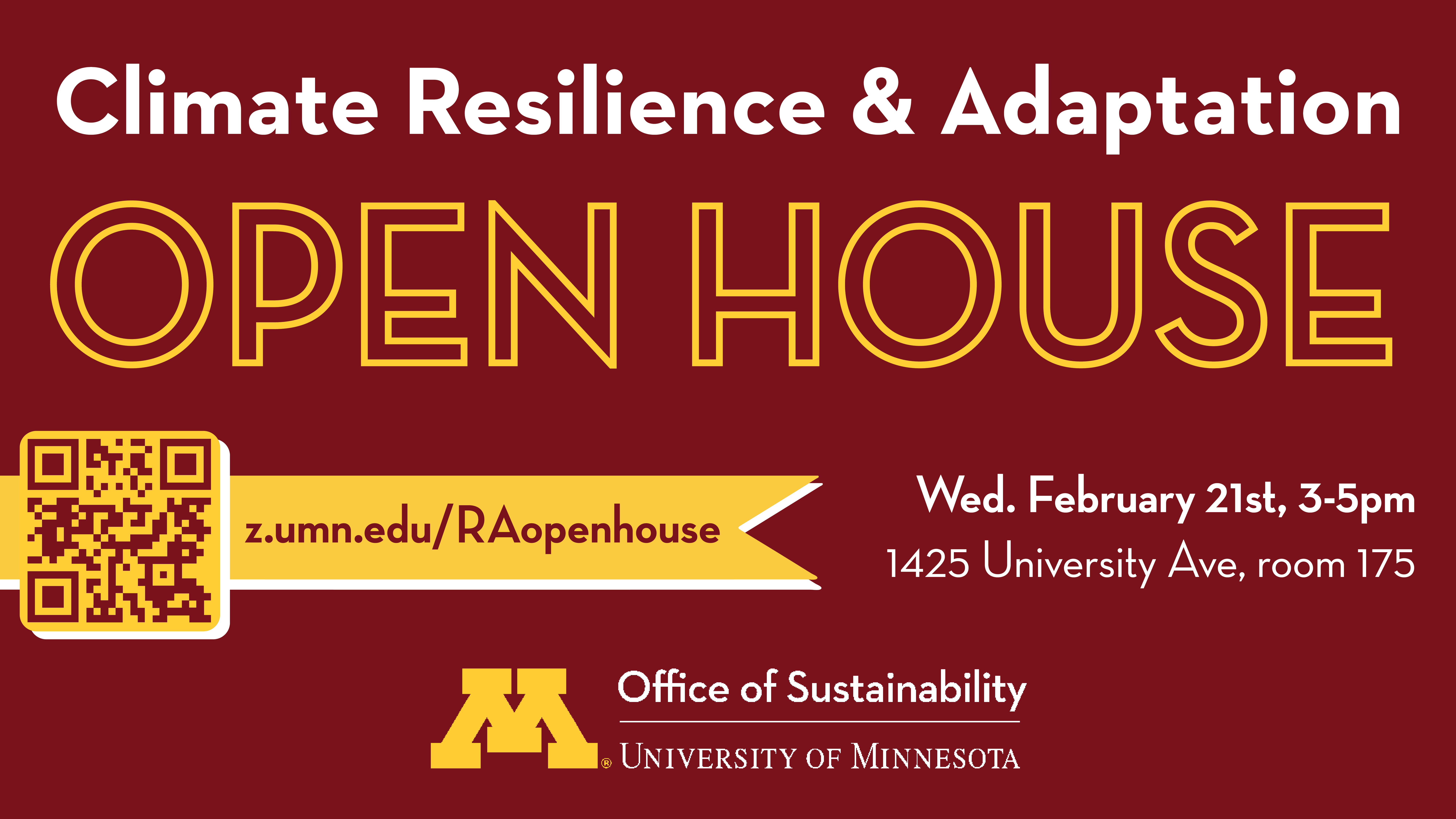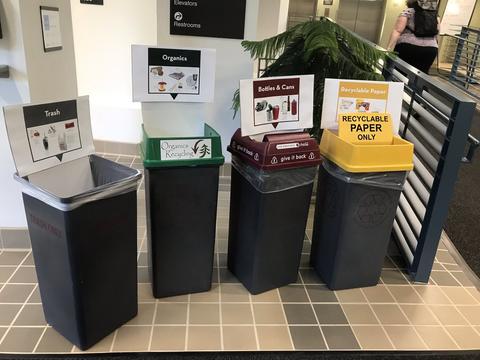
You may have noticed the green waste bins popping up across campus recently. These bins marked a very important shift in waste recovery at the University of Minnesota as the collection of organic materials becomes more prominent and readily available to all.
The University’s Recycling Program has started to introduce organics recycling to the campus community as an effort to reduce the number of organic materials going to landfills. Instead, these materials have the ability to compost naturally and become a soil-like substance that nourishes the ground and surrounding plants.
So what is organics recycling and what kind of items can be included in the organics recycling bins? Organics recycling is defined as the collection of organic materials. After collection, these organic materials will break down in the process called composting. Compostable service ware (like the plates and silverware found at Coffman) that have the BPI logo or say “compostable” can be composted as well as food waste, and yard waste items such as grass clippings and animal bedding.
In response to the University Senate resolution, the Organics Recycling program has vastly expanded over the past year and is currently available to the community in 44 buildings across campus. The expansion of these organics recycling bins will continue over the next two years as well. You can even view the projected rollout schedule and read more about the implementation process here. The Recycling Program tentatively hopes to have organic recycling bins available in all 180 buildings on campus by October 2020. Collecting this amount of compostable material will push waste diversion rates on the University’s campus from the current 40% to over 50%.
You may be wondering why this matters or how this impacts our campus in the long run. The University’s current goal is to become a zero-waste campus. Zero-waste campuses are those that divert 90% of produced waste from landfills. In order to reach this goal, a universal organics collection program is an important step. Currently, about 25% of all waste coming from our campus is organic material. When these materials are thrown in the trash, they end up at the landfill or in an incinerator. It actually costs about 3x more money to process trash than it does to process organics.
Looking forward, the campus community will have an increased ability to participate in organics recycling with the addition of new bins. Be on the lookout for the green bins popping up in the waste stations on campus and get educated on what can be included in these organics recycling bins. Check out this guide to help you out.
Be sure to check back in with this series to learn more about how you can get involved with organics recycling on campus!
